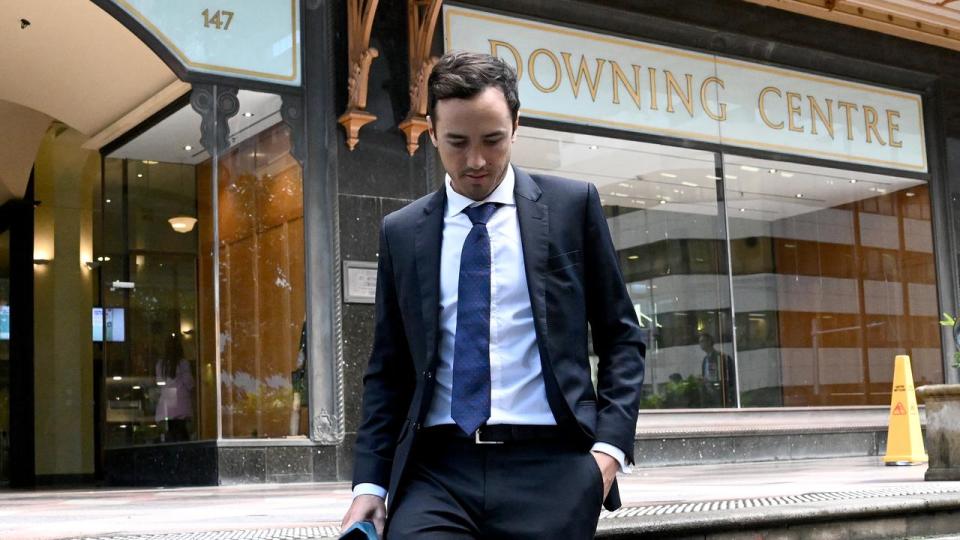Fraudster behind gambling scheme 'no Melissa Caddick'
A bankrupt who defrauded his family and friends out of $1.2 million through a failed sports-betting scheme was naive to think he could still win as he chased bad debts, a court has been told.
Michael Pryde has admitted his role in deceiving 18 victims through his Simply the Bets scheme in which participants gave him money to bet on golf, horse-racing or US national basketball or major-league baseball.
While his self-made algorithm initially brought him significant winnings and attracted the attention of family and friends, the success was not to last.
"This was so naive as to be embarrassing," the 32-year-old's lawyer John Sutton told Sydney's Downing Centre Local Court on Tuesday.
"How it didn't explode in his face much sooner, I think to some degree, is down to the avarice of those who gave him money to gamble with."

Pryde gained $320,000 from the scheme between August 2018 and January 2023 as part of his agreed 20 per cent cut of winnings.
At the time, he was living in a share-house with his then-girlfriend while around $2.4 million was returned to participants.
"No fast cars, no extravagant holidays, no expensive jewellery, no frittering money away on his own personal circumstances," Mr Sutton told Magistrate Scott Nash.
"The distinction I'm trying to make is … this is not Melissa Caddick."
Caddick, a self-styled financial adviser now declared dead, lived a life of luxury on the back of about $23 million stolen mostly from family and friends via an investment scam.
Pryde appeared at a sentence hearing on Tuesday supported by his father, brothers, partner and a number of friends.
He pleaded guilty to one count of dishonestly gaining financial advantage by deception and one count of using a false document to obtain a financial advantage.
While the betting scheme was poorly run, there was nothing initially illegitimate about people offering money to gamble while knowing the risks, Mr Sutton said.
The fraud started when Pryde started accepting money from new participants and was chasing bad debt at a time when it should have been obvious he was in trouble, the solicitor argued.
"Quickly, he was losing money because he was gambling outside the model in an impatient, imprudent way, a reckless way," he said.
"Inevitably, the house won or put in another way the scheme lost."
He then made a fraudulent document to try to forestall his bankruptcy while gambling more recklessly in the hope he could win back his lost money, the court was told.
Pryde was contrite and remorseful, emailing those involved in the scheme about his embarrassment before criminal charges had been laid.
He had been diagnosed with a gambling disorder but was no longer betting, the magistrate heard.
Mr Sutton argued that an intensive corrections order served in the community should be imposed instead of a full-time jail sentence.
Police prosecutor Wayne Law asked the court to order Pryde to pay $100,000 in compensation, the maximum allowable in the jurisdiction.
Mr Nash will deliver his decision on Thursday.


